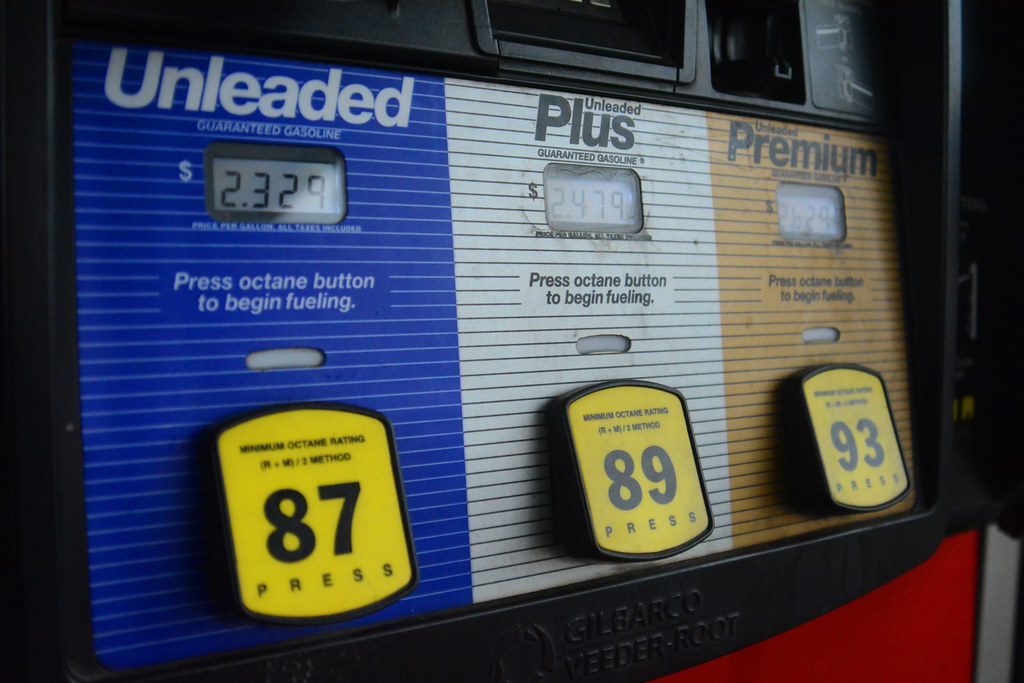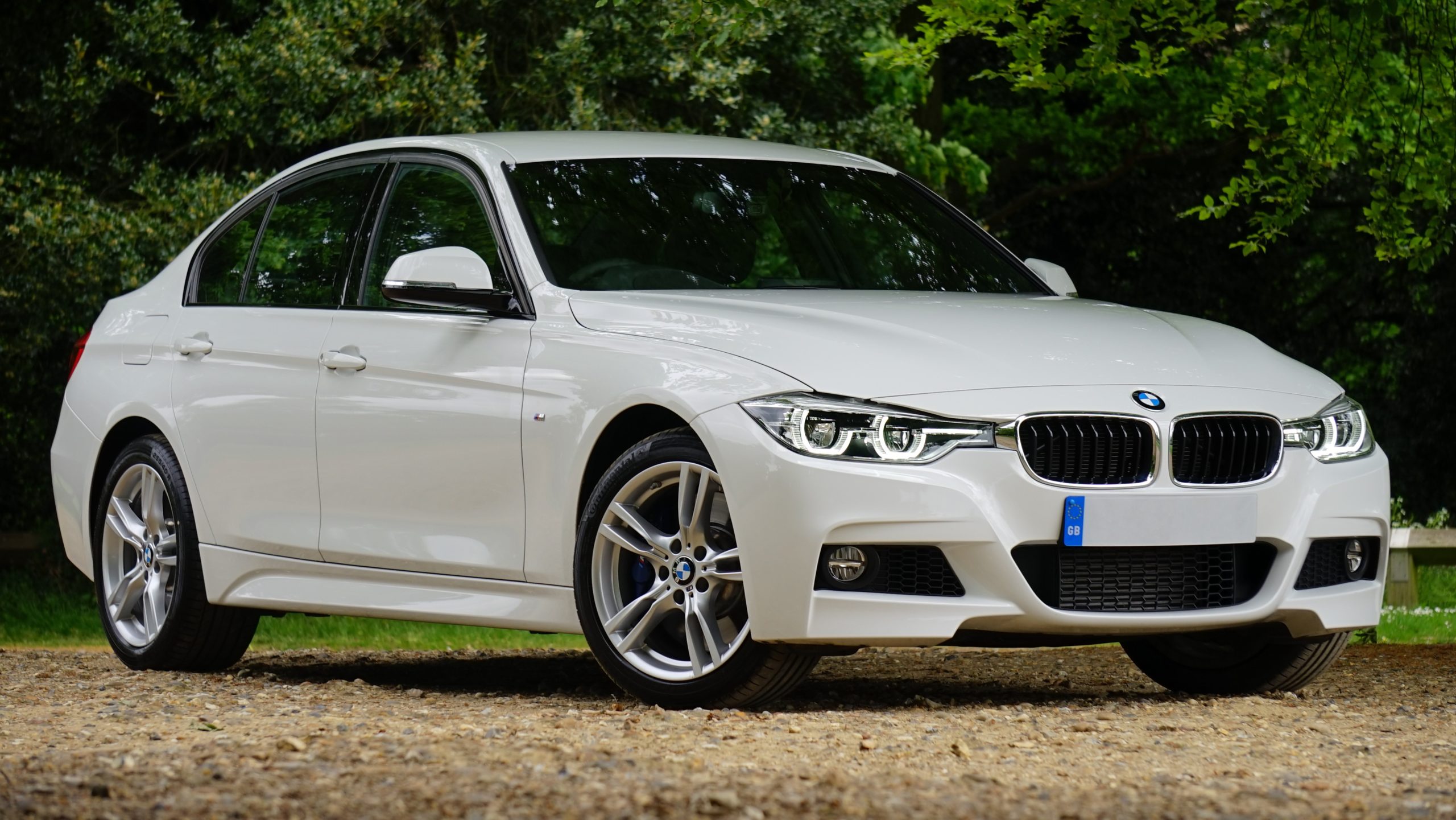When the terms “Premium” and “regular” gas are used it is in reference to the amount of octane in the gasoline. Premium has a higher octane content of typically 91-93 while regular has lower octane content of 87 to 88. High octane fuel is recommended for high-performance engines like BMWs as it can withstand high compression.
The downside of putting low octane gas in a high-performance car is that it causes the engine to knock or ping. What this means is that while in the short run you may be saving some money with regular gas you are ruining your engine in the long term.
While most of the newer BMW models have more electronic components and can therefore handle regular gas, it will put stress on some of these sensors. The knock sensors for example, have the capabilities to detect the kind of gas you are using then adjust performance accordingly.
Contents
Downsides of using regular gas
One key downside to using regular gas over the premium one is that it will reduce the performance of your car. As stated earlier newer BMW models now come with engine knock sensors that adjust engine performance depending on the type of gasoline you are using. When your car starts using regular gas you will notice some slowdown in acceleration rates.
It is estimated that a BMW car that is used to premium gas may lose up to 10HP when using regular gas. While this may not look like much when you are using your car for city traffic it is significant when you are accelerating on highways.

You may be wondering what is all this big deal about using regular gas over premium gas. I mean it’s cheaper. The answer lies with an engine process called detonation. The word when used for engines refers to the process where the fuel mixture in your cylinder combusts before the spark has being produced by the spark plugs. When this happens, extreme forces cause the engine components to rotate in the opposite direction. The popular term to be used for these scenarios is “ping” and refers to when the forces are so strong that they cause the connecting rods to move backwards. When they move into other components we call this a knock.
The solution to avoid this pings is to install an octane sensor in the engine block. This will detect your type of fuel and then retard the spark timing so as to prevent cases of detonation or knocks. While the sensor is still there you may still experience some detonation when you are pulling through a steep hill.
You should note that this sensor started being in-built into BMW engines starting from 1996. These models can use regular gas but you should always check your manufacturers manual to confirm usage.
Note that there some specific BMW models that only run on premium gas. If your BMW falls into any one of these categories then it is wise that you avoid regular gas:
- Has a high compression ratio/turbo engine
- Model older than 1996
- It’s an M model
You can also check this list to know whether your BMW model should consume premium gas.
BMW cars that most suffer from use of regular gas are those that have high compression engines and boosted cars. An example of such cars are the e39 and e46 models. These are estimated to have compression ratios of 11.5 to 1. Most standard BMW cars are at a less risk of using regular gas than the high performance ones. The decision still remains yours.
Another issue you may experience with fuel is when put in your car contaminated fuel. Contamination of fuel can be from anything including water.
Signs that your fuel is contaminated
Acceleration issues
One of the first signs that you have contaminated fuel in your car is that when you press the gas pedal the car hesitates for some time before picking up speed. This hesitation can be as result of the bad fuel in the internal combustion chamber. The problem even gets worse when you try to go faster. The car is either sluggish in acceleration or does not accelerate at all.
Abnormal speed changes
Closely related to the acceleration issues is when you notice sudden speed changes as you are driving. The car may seem to be pulling itself to speed then all of a sudden it picks up speed then stops.
Damages on the fuel filter
The main purpose of the fuel filter is to keep dirt and debris from getting into your combustion chamber. When the fuel filter is bad then it means all these contaminants end up in the internal combustion chamber.
Engine stops running
When you have bad fuel in your car, you could be driving normally then all of a sudden the engine stops running. The reason is the bad fuel is not properly being burnt in the internal combustion chamber and therefore your engine does not generate enough power to propel your car forward.
Trouble starting your engine
There are various reasons for trouble starting your engine like a dead battery or starter problems. However, having bad fuel in your car can also prevent your car from starting. This may be followed with the check engine light coming on or when you are driving you notice that the engine is misfiring or pinging. If you suspect any of the above the best cause of action is to take your car to the nearest mechanic so that they can verify the bad gas and clean up your fuel system.
Conclusion
The question whether to put regular or premium gas into your BMW will largely depend on the model you are driving. High-performance BMW can only perform well with premium fuel while some older models can do with regular fuel. Modern BMWs come with engine knock sensors that are able to detect the kind of fuel in the engine and adjust the starter ignition accordingly. This may lead to some slight change in performance.

